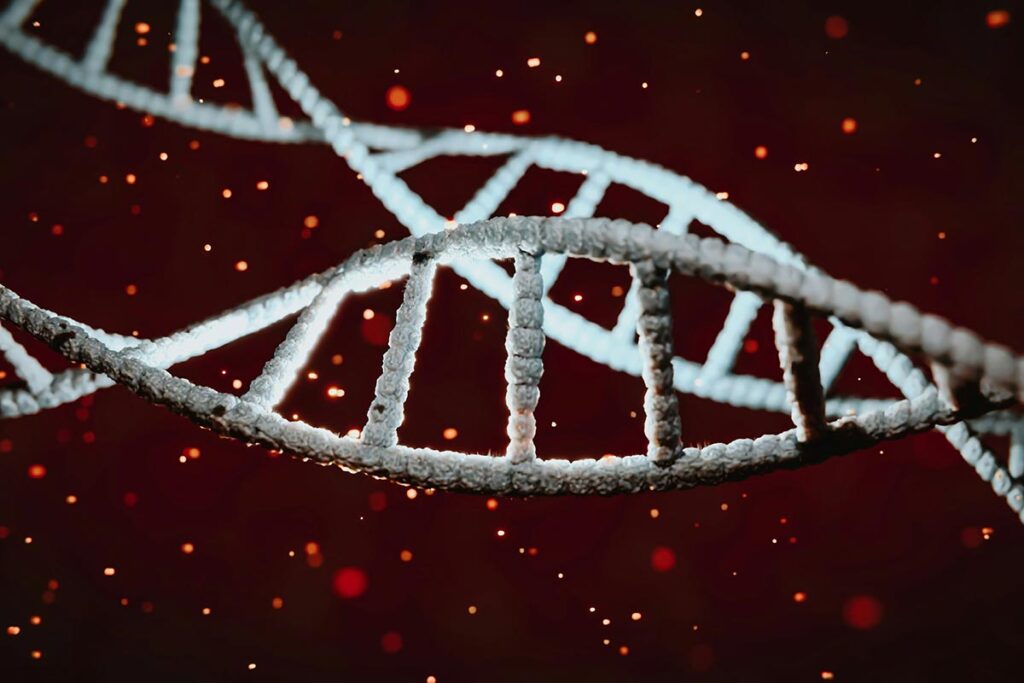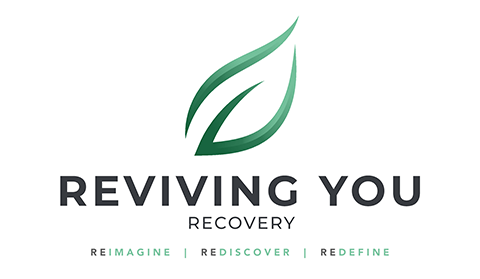Addiction and Genetics – What Do We Know?

In 2023, 48.5 million Americans qualified as having a substance use disorder, also known as an “addiction”. That means that 17.1% of the population aged 12 or older is addicted to drugs or alcohol. For many of us, substance abuse links to stress, trauma, mental health, and also to genetics. Family history of substance abuse is one of the most important factors in someone else using, and we’re increasingly becoming aware that that’s not just about environmental exposure to substances and substance abuse but also about genetics and vulnerability to dependence on alcohol or drugs.
Eventually, substance use disorders are always going to be complicated. Environmental exposure, mental health, coping mechanisms, genetics, and other factors will all come into play. However, it’s important to understand every factor, so you can understand your risks and vulnerabilities.
Is Addiction Heritable?
Most people think about addiction and think about poor personal choices, people making mistakes, and cycles of things getting worse. Few of us think about family patterns, inherited genes, or vulnerabilities that exist in who you are. Yet, research increasingly shows that genetics are an influencing factor in vulnerability to addiction.
It’s very possible that you or anyone you know could inherit genes that directly contribute to an increasing vulnerability to addiction. This means that you might have genes that influence how you take risks, how you respond to substances, how you self-soothe, how your brain adapts to substances, etc. What it doesn’t mean is that if you have these genes, you’re ready to be addicted. Instead, you have an increased vulnerability to addiction after exposure to substance abuse.
Let’s take a look at some of the genetic factors influencing addiction:
Genes – Most of us are aware of the basic structure of how genes work. You inherit genes from your parents, with a normal 50% copy from each. That’s why traits like blond hair and blue eyes are heritable. You get them in your genes from a parent. Some traits, like darker skin or brown eyes are dominant, meaning that if they are present, they are more likely to come out on top. A dominant gene has about a 50% chance of coming through to a child, even if only one parent has the gene.
Most of us are also familiar with the fact that genes can have different expressions depending on gender. For example, in women, the gene BRCA1 is widely linked to breast cancer. But, if a parent has BRCA1, you have a 50% chance of inheriting the pathogenic variation. For women, inheriting the pathogenic variation means a 60% chance of breast cancer. For men, that’s 8%, versus about 1% without the gene.
So, genes can play different roles based on gender, what you inherit, etc. We’ve also identified over 900 genes that can impact responses to addiction and addictive substances.
In addition, different genes impact susceptibility to different types of substances:
- Alcohol, 66 currently linked genes mapped to 29 different risks with the most significant being ADH1B, a gene affecting alcohol metabolism pathways
- Cannabis usage has a very moderate heritability with just four genes implicated, primarily affecting how the brain regulates input
- Tobacco use disorder is linked to 6 known gene expressions, with gene variant rs2714700 linked to heavy smoking and others like CHRNA5 linked to increase risks of dependence.
- Opioids are impacted by numerous genetics, but primarily by variants in the OPRM1 (opioid receptor) gene
In addition, there are plenty of other genes that affect all of these. For example, one study identified 1346 genetic triggers for initiating smoking and 496 for initiating having a drink. Increased frequency of use increases exposure, meaning that you are more likely to increase exposure enough to become dependent on the substance. Other factors, like how the brain processes and regulated dopamine can play a significant factor in how addiction works as well.

For example, the D2 subtype of dopamine receptor is extremely common in individuals with substance use disorders of any kind, and is thought to impact the feeling good or feeling euphoria that people get out of substance abuse.
With so many genes impacting substance abuse and addiction, it’s important to keep in mind that genetics can play a role.
Get Your Questions Answered Now

Heritable Traits and Addiction
Epigenetics are heritable markers, or tags in your DNA that pass short-term adaptions to environment from parents to children to grandchildren and sometimes further. Epigenetics normally come into play to help people manage surroundings. For example, you live in a hot area, so epigenetic markers come into play so that kids are more adapted to living in a warm environment.
With alcohol and drugs, those markers instead change how that person responds to substances, usually making them more able to function when drinking or using, but less able to do so without. Epigenetics impact how people process trauma, handle relationships, and process substances, because they impact what the body thinks is normal. That also goes on to impact people for as long as 4 generations after exposure.
Are Children of Addicts Guaranteed to Become Addicts?
In one 2024 study, it was shown that approximately 50% of the variability in opioid dependency is due to genetic effects. The same study shows that metabolic pathways, controlled by genetics, impact cravings for alcohol and alcohol dependence. Genetics and epigenetics increase your susceptibility to alcohol abuse and dependence. For example, if you don’t use, you’ll never have opportunities to become addicted. On the other hand, those same genes can increase your risk-taking behavior, meaning you’re less able to weigh the risks of an activity, which increases your likelihood of addiction. You can also have more problems controlling amount of substances taken at once, understanding how much you’re taking, or saying no.
If you’re genetically susceptible to substance abuse, it means you have more vulnerabilities than most people. That can be an extremely important factor in substance abuse, developing dependencies, and developing addictions. However, it doesn’t mean it caused the addiction. It does mean you have to be more careful around substances and that you should minimize or avoid usage wherever possible. It also means you’ll have to work harder for that than many others would. You might want to invest in therapy and counseling for coping with stress, managing interpersonal conflict, building healthy habits, and asking for help if something gets out of control. The longer substance abuse has been the norm in your family, the more important it is that you proactively work to get help for the effects of environment, stress, and genetics on your vulnerability to addiction. Still, you can, and many people do, avoid substance abuse and addiction altogether and you can even recover and go on to live a healthy and sober life.
Getting Treatment
If you or a loved one is struggling with substance abuse, it’s important to get help. Here, you’ll want to talk to your doctor and your addiction counselor, both about your usage, and your family history of addiction. If your parents or grandparents struggled with substance abuse, that will impact how you are able to handle and manage substances, both on a genetic level and based on what you learned growing up. Chances are that you’ll have to learn new coping mechanisms, change lifestyle, and potentially change your environment to create an environment where you can recover.
Eventually, the goal of substance abuse treatment is to give you the tools you need to live a healthy and happy life without substances. That means counseling, therapy to help you replace behaviors with healthy ones, and the tools to build a healthy lifestyle and coping mechanisms, so you don’t need drugs and alcohol in your life anymore. Good luck getting treatment.
We Accept Most Insurances
We are in network with:






We know insurance coverage can be a source of uncertainty for people. We make sure you have all the information necessary. The great news is health insurance can potentially cover the total treatment costs. If you don't have insurance, we offer cash payment options for our treatment programs and are committed to working with clients regardless of financial situations.
